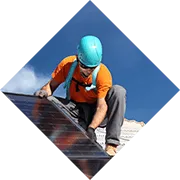electrical inverter
Understanding Electrical Inverters An Essential Component of Modern Electrical Systems
Electrical inverters have become indispensable in today’s energy landscape. These devices play a critical role in converting direct current (DC) from various sources into alternating current (AC), which is the standard form of electricity used in homes and industries. As renewable energy sources, such as solar panels and wind turbines, gain prominence, the importance of inverters continues to grow. This article delves into the functions, types, and applications of electrical inverters, as well as their impact on energy efficiency and sustainability.
What is an Electrical Inverter?
An electrical inverter is an electronic device that converts DC to AC. This conversion is crucial because most household appliances and electrical systems operate on AC. For example, solar panels generate DC electricity, which must be converted to AC to be fed into the grid or used to power homes. Inverters not only facilitate this conversion but also enhance the quality of the electricity produced by managing voltage, current, and frequency.
Types of Inverters
There are several types of electrical inverters, each designed for specific applications
1. String Inverters Commonly used in solar power systems, these inverters connect multiple solar panels in series (or strings). They are cost-effective and reliable but may not perform optimally if one panel is shaded or malfunctioning, as the output of the entire string is affected by the lowest-performing panel.
2. Microinverters These are small inverters that attach to each individual solar panel. Microinverters allow for maximum energy production, as each panel operates independently. This technology is ideal for systems with shading issues or complex roof layouts, although they tend to be more expensive than string inverters.
3. Central Inverters Used in large-scale solar farms, central inverters can manage several hundred kilowatts of power. They are typically more efficient and cost-effective for larger installations but may require more complex maintenance and monitoring systems.
electrical inverter

4. Hybrid Inverters These versatile inverters can handle inputs from both renewable energy sources and the electrical grid. They allow for energy storage integration, making them suitable for off-grid solutions or systems that prioritize energy independence.
Applications of Inverters
Inverters find applications in various sectors beyond solar energy. They are used in electric vehicles (EVs) to convert battery DC power into AC power to drive the electric motor. In industrial settings, inverters control the speed and torque of electric motors, enabling energy-efficient operation of machinery and equipment. Furthermore, they play a crucial role in uninterruptible power supply (UPS) systems, providing backup power during outages.
Impact on Energy Efficiency
The advancement of inverter technology has significantly improved energy efficiency and reliability. Modern inverters are equipped with smart features that optimize energy production and consumption. For instance, maximum power point tracking (MPPT) algorithms enable inverters to extract the maximum available power from solar panels, even under varying environmental conditions. Additionally, energy management systems connected to inverters allow users to monitor and control their energy usage more effectively.
Future Trends
As the demand for renewable energy solutions grows, the inverter market is expected to evolve rapidly. Innovations in artificial intelligence, machine learning, and Internet of Things (IoT) technology are poised to enhance the capabilities of inverters, making them smarter and more user-friendly. Furthermore, as grid modernization progresses, inverters will increasingly facilitate the integration of distributed energy resources, helping to create a more resilient and sustainable energy grid.
Conclusion
Electrical inverters are more than just a component of energy systems; they are vital facilitators of the transition to a more sustainable energy future. By enabling the effective use of renewable energy sources and enhancing the efficiency of electrical systems, inverters play a crucial role in meeting the energy demands of the modern world. As technology continues to advance, the impact of inverters on energy efficiency and sustainability is likely to grow, paving the way for a cleaner and more responsible energy landscape.
-
Unlocking Energy Freedom with the Off Grid Solar InverterNewsJun.06,2025
-
Unlock More Solar Power with a High-Efficiency Bifacial Solar PanelNewsJun.06,2025
-
Power Your Future with High-Efficiency Monocrystalline Solar PanelsNewsJun.06,2025
-
Next-Gen Solar Power Starts with Micro Solar InvertersNewsJun.06,2025
-
Harnessing Peak Efficiency with the On Grid Solar InverterNewsJun.06,2025
-
Discover Unmatched Efficiency with the Latest String Solar InverterNewsJun.06,2025







